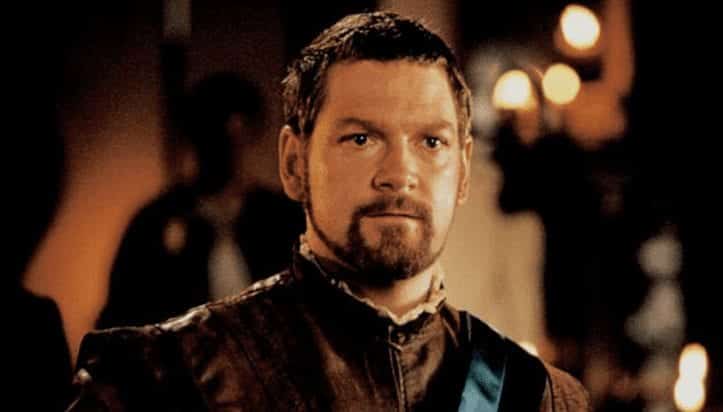Read Shakespeare’s ‘And What’s He Then That Says I Play The Villain’ soliloquy from Othello below with modern English translation and analysis, plus a video performance.
‘And What’s He Then That Says I Play The Villain’, Spoken by Iago, Act 2, Scene 3
And what’s he then that says I play the villain?
When this advice is free I give and honest,
Probal to thinking and indeed the course
To win the Moor again? For ’tis most easy
The inclining Desdemona to subdue
In any honest suit: she’s framed as fruitful
As the free elements. And then for her
To win the Moor—were’t to renounce his baptism,
All seals and symbols of redeemed sin,
His soul is so enfetter’d to her love,
That she may make, unmake, do what she list,
Even as her appetite shall play the god
With his weak function. How am I then a villain
To counsel Cassio to this parallel course,
Directly to his good? Divinity of hell!
When devils will the blackest sins put on,
They do suggest at first with heavenly shows,
As I do now: for whiles this honest fool
Plies Desdemona to repair his fortunes
And she for him pleads strongly to the Moor,
I’ll pour this pestilence into his ear,
That she repeals him for her body’s lust;
And by how much she strives to do him good,
She shall undo her credit with the Moor.
So will I turn her virtue into pitch,
And out of her own goodness make the net
That shall enmesh them all.
‘And What’s He Then That Says I Play The Villain’ Soliloquy Translation
Who could say that he was playing the villain? This was open and honest advice he had given. It was wise and logical and absolutely the right course to win the Moor over, because it would be easy to commit the kindhearted Desdemona to any good cause. She had the most generous nature. And then, for her to persuade the Moor, even if it were to renounce his baptism – that very symbol of his redemption from sin – would be easy. He was so in love with her that she could make him, break him, do as she liked with him. He was completely under her spell. How could he then be called a villain when he was giving Cassio such good advice? It was the divinity of hell. When devils want to do their worst evil they seduce their victims with displays of good actions, as he had just been doing. While that honest fool plied Desdemona to help him, and while she was in turn begging the Moor, he would pour poison into Othello’s ear. He would suggest to the Moor that she was doing it out of lust for Cassio so that the more she pestered the Moor about it the more damage she would be doing to herself. In that way he would turn her virtue into pitch and use her very goodness to weave the net that would enmesh them all.
Watch ‘And What’s He Then That Says I Play The Villain’ Soliloquy Performance

Kenneth Brannagh as Iago, about to speak his “how then am I the villain” soliloquy




Who is Iago addressing here? Is he talking to himself, thinking out loud, or something else?
Well, a soliloquy is when a character describes their thoughts regardless of listeners, so to no one in particular.
As a soliloquy is then just a verbal projection of the characters thoughts, this piece of dialogue is Iago talking to himself whilst thinking out loud.
I believe this part could have been said in front of some of his most trusted troops at the time.
Personally this confused me a little as im only studying this as a drama assignment. I was writing out the translated text and got a bit muddled that it says ‘He’ and not ‘I’ in some parts.